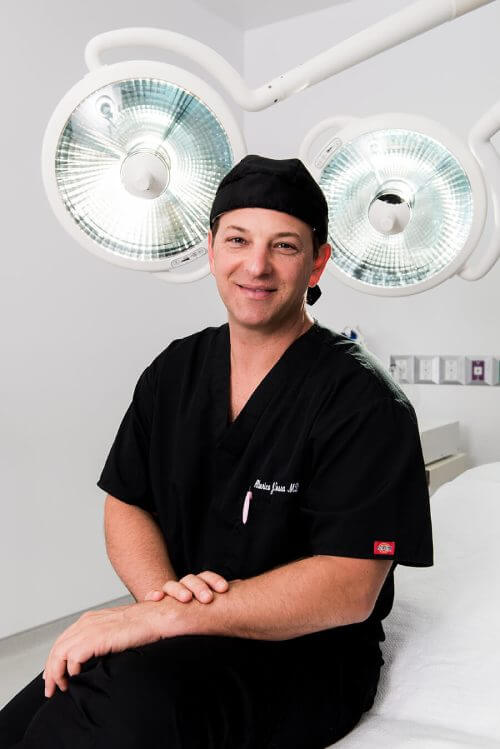The shape of the nose highly affects the way we look. Everyone wants to have a perfect nose, but most of us dislike its shape or size. Nose jobs, also known as rhinoplasty, are entering a new era, and they have become one of the most talked about cosmetic surgeries. A slight change in the shape or size of the nose can alter our facial aesthetics. Due to advanced techniques, you can expect more natural results and fewer side effects.
However, recent scientific research has raised an important question about voice changes following rhinoplasty. Let’s explore what the evidence actually shows.
What is a Nose Job?
A nose job or rhinoplasty is performed to reshape and resize the nose for aesthetic or functional purposes. Beyond cosmetic improvements, it can help people with breathing problems due to structural issues like a deviated septum or enlarged turbinates. The procedure is performed by board-certified surgeons in surgical settings, making proper surgeon selection crucial for optimal results.
The Science Behind Voice Changes After Rhinoplasty
According to a study published in Plastic and Reconstructive Surgery® (February 2014), voice changes do occur after rhinoplasty, though they’re typically subtle. A research by Dr. Kamran Khazaeni and colleagues analyzed 27 patients and found that while voice quality changed, speech function remained intact.
Why Your Voice May Change
The scientific explanation involves changes in nasal cavity aerodynamics. When the internal nasal structures are modified during rhinoplasty, it can:
- Increase airflow resistance
- Alter sound absorption patterns
- Decrease sound amplitude for certain frequencies
- Create “hyponasality” – similar to speaking with a stuffy nose
Think of it like the difference between speaking through an open door versus a partially closed one – the sound quality changes even though the words remain clear.
Types of Voice Changes: Cosmetic vs. Functional Procedures
Purely Cosmetic Rhinoplasty
If your procedure focuses only on external appearance, voice changes are minimal. You’ll sound congested immediately post-surgery due to swelling, but this resolves as you heal.
Combined Procedures
When rhinoplasty is combined with:
- Septoplasty (straightening the nasal septum)
- Turbinate reduction
- Other airway improvements
Voice changes may be more noticeable as these procedures significantly alter internal nasal airflow patterns.
Timeline and Recovery Expectations
Professional singers should note that voice changes can persist for up to 5 months during healing. The Iranian study found that 22% of rhinoplasty patients who used their voice professionally noticed changes in voice quality, though not in function.
Recovery Tips to Minimize Voice Changes:
- Get adequate rest: 8+ hours of sleep nightly
- Elevate your head: Use 2-3 pillows to reduce swelling
- Stay hydrated: Helps maintain vocal cord health
- Avoid smoking: Nicotine impairs healing and voice quality
- Follow medication protocols: Reduces inflammation affecting voice
Special Considerations for Professional Voice Users
Singers, teachers, actors, and other professionals who rely on their voice should discuss potential changes during consultation. The research shows that trained listeners can detect voice differences post-rhinoplasty, even when patients don’t report functional problems.
Dr. Sessa at Sarasota Surgical Arts emphasizes the importance of balancing aesthetic goals with preserving voice quality, especially for professional voice users.
How to Minimize Risk of Voice Changes
While it’s impossible to completely eliminate risk, certain precautions help:
- Conservative approach: Avoid making the nose too small, which could overly restrict airways
- Preserve nasal valve integrity: Maintains proper airflow dynamics
- Choose an experienced surgeon: Board-certified surgeons understand the relationship between nasal anatomy and voice
- 3D imaging planning: Modern technology helps predict outcomes
- Discuss concerns pre-operatively: Especially important for professional voice users
The Bottom Line
Based on current research, rhinoplasty can cause subtle voice changes that are perceptible but rarely problematic. The study in Plastic and Reconstructive Surgery® found changes in voice quality but no impairment in daily communication. Most patients adapt quickly, and improvements in breathing may actually enhance voice projection and endurance.
Conclusion
With rising awareness about plastic surgery, nose jobs have gained unprecedented popularity. The procedure has evolved beyond celebrity circles to become accessible to anyone seeking nasal improvement. While voice changes are a documented possibility – particularly “hyponasality” – they’re generally subtle and don’t interfere with speech function.
For singers and professional voice users, these changes deserve special consideration. Dr. Sessa at Sarasota Surgical Arts provides comprehensive consultations to discuss potential voice impacts and develop surgical plans that minimize airway alterations while achieving your aesthetic goals. Remember, the key is finding an experienced, board-certified surgeon who understands both the aesthetic and functional aspects of nasal surgery.
Additional Reads:






